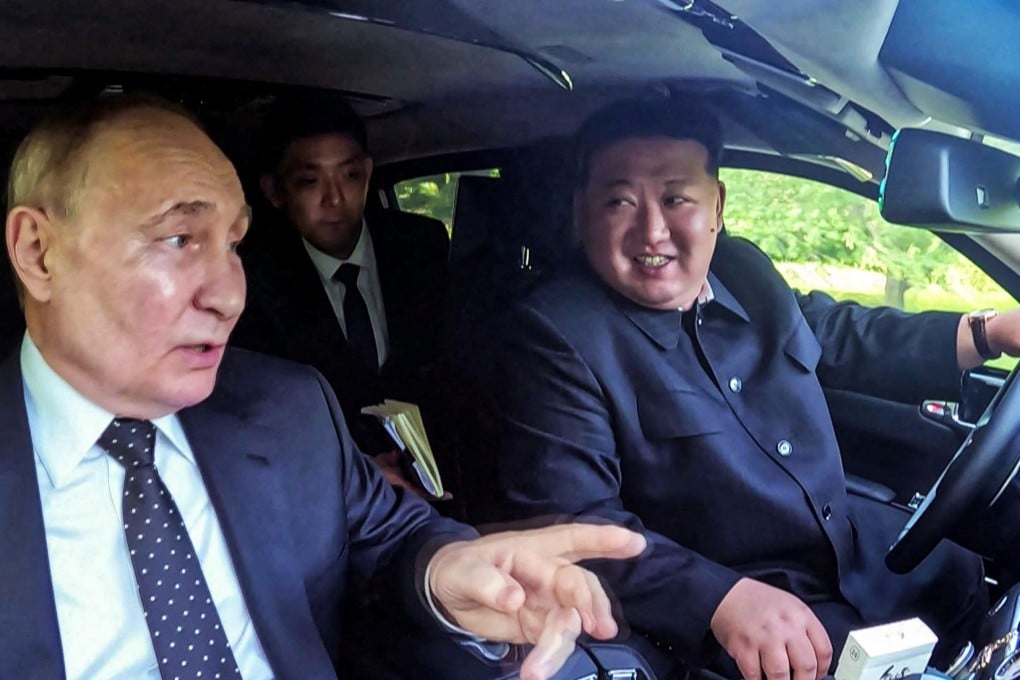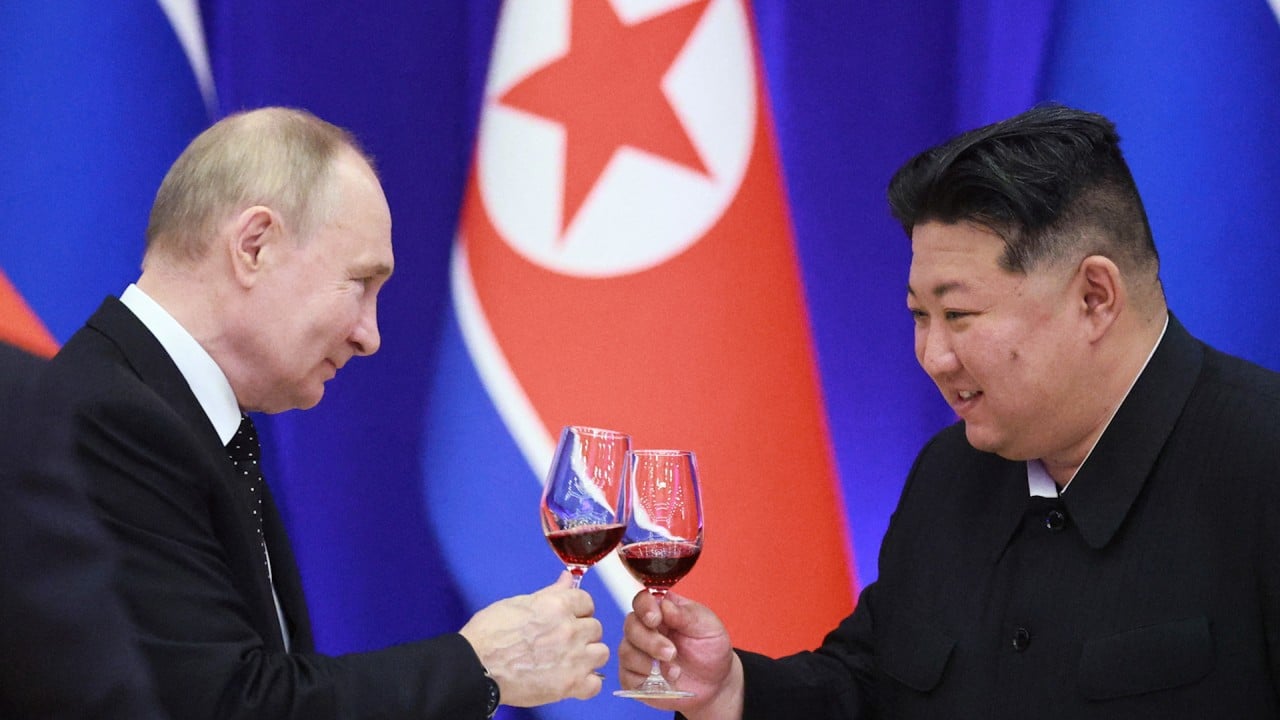North Korea’s shifting satellite allegiance to Russia signals China’s waning influence
- Appearing to lead ‘axis’ including Moscow, Pyongyang and Tehran does not appeal to Beijing, analysts say after Putin and Kim sign treaty

Meanwhile North Korea and Russia have stepped up their diplomatic and military collaboration on the Ukraine war.
According to global TV and radio satellite data intelligence website LyngSat, North Korean state-run broadcasters, such as Korean Central Television, started transmitting its overseas broadcast through a Russian satellite, Ekspress 103, from June 20, leaving ChinaSat 12 satellite by July 1.
A South Korean ministry of unification official announced on Monday that North Korea had switched the transmission of its state TV broadcasts from a Chinese to Russian satellite, complicating the monitoring of Pyongyang’s broadcasts.
Government agencies and media in Seoul have monitored North Korean state media, which is one of the limited outbound sources of information from the reclusive state.

